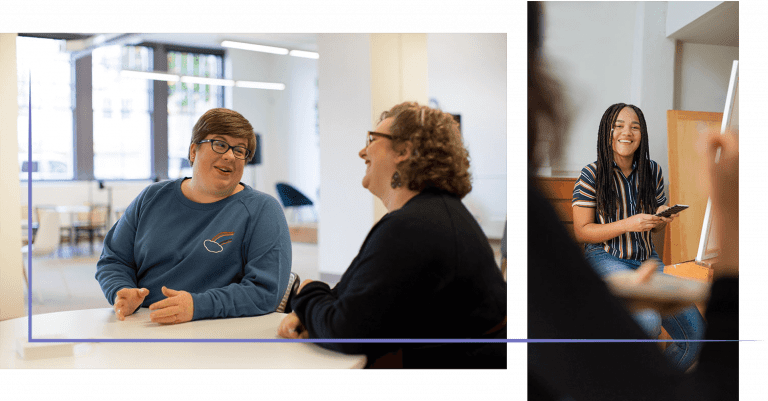Your Journey
Work toward your professional goals with the Master of Education in Curriculum and Instruction. Build a toolkit of strategies with our core courses to develop comprehensive curricula and engage learners. Pursue your passion with one of three specializations.
Continue your work as an action researcher in the capstone phase. Develop a research question in an area of interest, curate your knowledge of existing literature, and present your findings to faculty and peers.


Specializations
Discover the specialization that truly speaks to your passion and interests and get ready to make a real impact in the field you love:
All three pathways foster reflective practice strategies and action research to inspire curriculum design.
Your academic advisor will help you plan your perfect timeline and curricular path, with most students completing their degree in 2–3 years. Learn at your own pace, complete coursework on your schedule, and engage with a vibrant community of art teachers through weekly discussion boards and collaboration.












